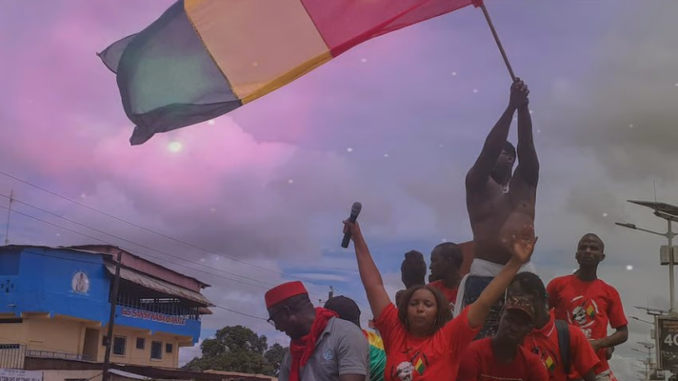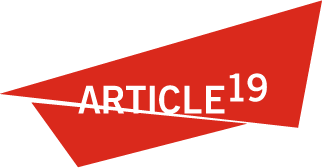
ARTICLE 19 is deeply concerned by Guinea’s transitional authorities’ announcement that all demonstrations will be banned in the country for the duration of the transition period, 36 months. We call on the transitional authorities to reconsider this decision and to guarantee that people will be entitled to fully exercise their right to protest.
In a statement issued on 13 May 2022, the National Committee for the Rally for Development (Comité National du Rassemblement pour le Développement – CNRD) banned ‘any demonstration in the public space likely to undermine social peace and the proper implementation of activities contained in the transition timetable until the start of the election campaign period.’ This decision comes in the context of the controversial adoption of a 36-month transition period, which some civil society organisations denounced due to its length.
The right to demonstrate is a fundamental right guaranteed by the provisions of article 10 of the Guinean constitution, as well as international human rights laws that are binding on the country. It encompasses the exercise of a number of interrelated and interconnected human rights, particularly freedom of expression, freedom of peaceful assembly, freedom of association, and the right to participate in public affairs.
“The banning of demonstrations often leads to opposition and even more to violent and deadly forms of confrontation, as already experienced by Guinea in its recent past. The sine qua non condition for democracy to exist is that citizens can organise and demonstrate in the public space, especially during this period of transition where respect for human rights must be a top priority,” said Jeanne Irène NGUIDJOI, Senior Programme Officer, ARTICLE 19 West Africa.
Under international human rights law and standards, no restriction on the rights to freedom of expression, assembly and association may be imposed unless it is prescribed by law, pursues a legitimate aim, is necessary and proportionate in pursuance of a legitimate aim and not discriminatory.
In line with the Guidelines on Freedom of Association and Assembly in Africa, ‘the blanket application of restrictions, including the banning of assemblies … shall be permitted only as a measure of last resort, where the ban in question complies with the principle of proportionality’. Furthermore, restrictions on the right to protest should be deemed necessary only if there is a pressing social need for the restriction. The party invoking the restriction must show a direct and immediate connection between the protest and the protected interest. However, the 36-month-ban on protests in Guinea is not proportionate and does not appear to be based on any pressing social need or legitimate justification.
Background
A military coup took place in Guinea on 5 September 2021. This prompted Economic Community of West African States (ECOWAS) sanctions. ECOWAS took the decision to freeze the financial assets of the new Guinean leaders for failing to announce a timetable for the establishment of a transition of power. At the end of March, ECOWAS ordered the leaders to present an ‘acceptable’ transition timetable ‘by April 25 at the latest’ or risk an extension of the economic sanctions. Guinea subsequently requested more time beyond the April 25 deadline to allow consultations to continue. As a result, the National Transitional Council (NTC) has finally approved a timetable of 36 months for the transition, rather than the 39 months originally suggested by the National Committee of the Rally for Development (CNRD).
For more information please contact:
Maateuw Mbaye Program Assistant, ARTICLE 19 Senegal/West Africa Email: maateuwmbaye@article19.org T: +221785958337
Ou
Aissata Diallo Dieng, Executive Assistant, ARTICLE 19 Senegal/West Africa
Email : senegal@article19.org T:+221338690322
